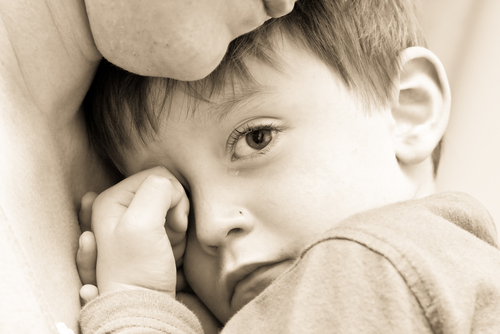 Most of us have been through some form of grief in our lives and because of this, we understand just how tough it can be on a child. In fact, by the time your child is in school, they understand that death is a finality, but might not feel it is something that will happen to people close to them.
Most of us have been through some form of grief in our lives and because of this, we understand just how tough it can be on a child. In fact, by the time your child is in school, they understand that death is a finality, but might not feel it is something that will happen to people close to them.
Whether they have lost a family member, friend or well-loved pet, here are five ways you can help:
Be a listener
Your youngster is likely to have a lot of questions that they need answers to, and you need to be there when they do want to open up. As your child tries to understand what has happened and to get a grasp of their emotions it is important you are there for them to listen. Try not to put words in their mouth, instead wait for them to find the words to express how they feel.
Feelings of grief don’t just go away
It is important you realise that grieving doesn’t just happen overnight, it is a process. Don’t force them to get back into their normal activities until they are ready. Everyone grieves differently - some kids may welcome the distraction while others may need the space to get their head around things.
Encourage questions
Encourage them to ask questions by enquiring how they are feeling and expressing your own grief. By asking questions your little one will feel less anxious, so make sure you listen to what they say and try to answer appropriately, depending on their age.
Be honest with them
When they do come to you make sure you give them a clear, simple, yet honest, answer. If you don't know the answer make them aware of this, but avoid lying. By asking questions it is obvious that they are trying to work things out in their head so try to be as honest as possible.
Don’t try to hide your own grief
Your child will learn how to handle their grief by looking at you so don’t hide when you become upset. It is also important you take stock of your own grief so that you are able to help your son or daughter. If you need support from other people ask for it.






